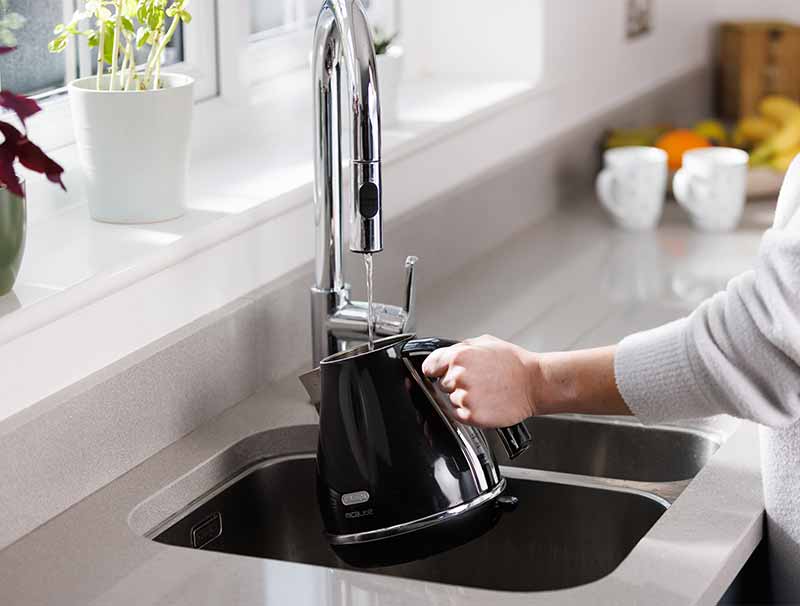Best Ways for Rectifying Low Water Pressure in Your Home
Best Ways for Rectifying Low Water Pressure in Your Home
Blog Article
They are making a few great points on the subject of Low Water Pressure in the House? as a whole in this content in the next paragraphs.

Low water stress in your home can be a frustrating trouble, influencing whatever from showering to cleaning meals. If you're experiencing weak water flow, there are several feasible reasons and options to check out. In this overview, we'll go over common reasons for low water stress and sensible actions to attend to the concern successfully.
Intro to Low Tide Pressure
Low tide pressure happens when the circulation of water from your faucets, showers, and other fixtures is weak than typical. This can make everyday jobs more challenging and much less efficient. Comprehending the causes of low tide stress is critical to discovering the right service.
Typical Causes of Low Water Pressure
Faulty Stress Regulators
Stress regulatory authorities are in charge of maintaining regular water pressure in your house. If they malfunction, it can cause low water stress or irregular circulation throughout your home.
Municipal Supply Of Water Issues
Often, the issue exists outside your home. Local water issues, such as main line leakages or maintenance job, can momentarily lower water stress in your area.
Pipeline Obstructions
Gradually, pipes can end up being clogged with mineral deposits, sediment, or particles, limiting the circulation of water. This is an usual concern in older homes with galvanized steel pipes.
Corrosion
Rust within pipes can lead to leaks and minimized water pressure. Rust build-up can restrict water flow, specifically in aging plumbing systems.
How to Diagnose Low Tide Pressure
Evaluating Pipes
Evaluate visible pipes for indications of leaks, corrosion, or clogs. Take notice of any kind of uncommon sounds, such as banging or rattling pipes, which could show issues within the plumbing system.
Consulting with a Plumber
If you're incapable to pinpoint the cause of low water stress, take into consideration employing an expert plumber to carry out a thorough inspection. They can recognize underlying issues and recommend ideal remedies.
Checking Faucets and Components
Beginning by testing the water stress at various taps and fixtures throughout your home. If the issue is separated to certain areas, it might indicate local problems.
Do It Yourself Solutions to Repair Low Water Pressure
Flushing Hot Water Heater
Sediment build-up in the hot water heater can limit flow and reduce efficiency. Flushing the tank occasionally helps get rid of debris and preserve ideal efficiency.
Examining Stress Regulatory Authority
Make certain that the stress regulator is operating correctly. Readjusting or changing the regulatory authority can assist restore correct water stress throughout your home.
Cleaning Up Aerators and Showerheads
Mineral deposits can build up in aerators and showerheads, minimizing water flow. Get rid of and cleanse these parts routinely to improve water pressure.
Clearing Up Clogs in Pipeline
For minor obstructions, try making use of a plumbing snake or chemical drainpipe cleaner to clear obstructions in pipelines. Beware when using chemicals and follow safety guidelines.
When to Call an Expert Plumber
If do it yourself initiatives stop working to settle the concern or if you presume significant plumbing issues, it's best to look for help from an accredited plumber. They have the knowledge and devices to attend to complex issues safely and successfully.
Safety Nets to Preserve Water Stress
Setting Up a Pressure Booster
Take into consideration mounting a pressure booster pump to enhance water stress in areas with consistently reduced circulation. This can be especially valuable for multi-story homes or buildings with high-demand components.
Monitoring Water Use
Bear in mind water usage routines and avoid ill-using the plumbing system. Basic changes, such as astonishing showers and laundry lots, can assist maintain sufficient water pressure.
Routine Maintenance
Set up routine upkeep for your plumbing system to prevent concerns such as corrosion, leakages, and clogs. Addressing small problems early can help prevent even more significant fixings later.
Verdict
Managing low tide stress can be discouraging, but identifying the underlying causes and executing proper remedies can restore optimum flow throughout your home. Whether it's cleansing aerators, evaluating pipelines, or consulting with a plumber, taking aggressive actions can make certain a consistent supply of water for your day-to-day needs.
FOUR WAYS TO FIX LOW WATER PRESSURE NOW
Turning on a shower or faucet only to find the water comes out in a sad, slow drizzle is never a good feeling. How exactly are you supposed to wash a pan or take a quick shower when it takes 10 minutes just to rinse off a little soap? The good news is that when your water pressure is bad, there's always a cause: typically one that can be easily fixed. Here are some of the most common causes of low pressure and what you can do to fix the issue:
DEBRIS AND MINERAL DEPOSIT BUILDUPS
If you notice low water pressure from just one or two of the fixtures in your house, the problem likely has to do with debris buildup. Water is full of minerals and other debris, all of which can accumulate in your pipes and on your fixtures. This can cause a blockage that affects how much water flows through. To fix this, try filling a small plastic bag with white vinegar, and use a rubber band to hang it around your showerhead or faucet. Let the head of the fixture soak for a few hours, and the vinegar should loosen the deposits.
WATER LEAKS
Leaks are another common cause of low water pressure. If water is flowing out of your plumbing through a hole or crack before it can reach your fixture, the pressure coming out of the faucet or showerhead will be lower. A plumbing professional is your best bet for finding and repairing a leak in your water supply pipes.
Leaks are another common cause of low water pressure. If water is flowing out of your plumbing through a hole or crack before it can reach your fixture, the pressure coming out of the faucet or showerhead will be lower. A plumbing professional is your best bet for finding and repairing a leak in your water supply pipes.
A VALVE ISSUE
If you have low water pressure throughout your home, check your main shut-off valve to make sure it's completely open. You may also want to see if there's a pressure-reducing valve installed. If there is, have a plumber help you adjust the settings to get the pressure you're looking for.
OTHERS USING WATER
Believe it or not, your low water pressure could be caused by your neighbors. If you notice low pressure at certain times of day, it may be because you and the people living next to you have similar schedules - when everyone is showering at the same time, the pressure will be lower in every home. Low pressure throughout the neighborhood may also be caused by an issue with your municipal water supply. If that's the case, call the supplier to see if they're working on the issue.
https://www.rotorooter.com/blog/water-leaking/low-water-pressure-fixes/

Hopefully you enjoyed our piece about Low Water Pressure in the House?. Thanks a ton for taking the time to browse our post. Are you aware of anybody else who is intrigued by the subject? Be sure promote it. Thanks for going through it.
Click Here Report this page